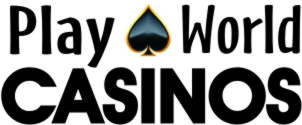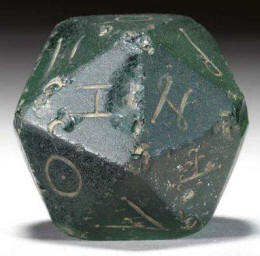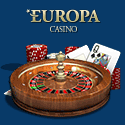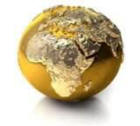

Casino history .... Gambling history ..... Casino and gambling trivia
- Home
- Best Online Casinos by Country
-
Online Casinos
- Top 10 online casinos
-
Casino Reviews
- 21Prive Casino
- 32Red Casino
- Aladdins Gold Casino
- Bet365 Casino
- Bovada Casino
- Casino Tropez
- Club SA Casino
- Club World Casino
- Eurogrand Casino
- Europa Casino
- Euro Palace Casino
- Europaplay Casino
- Gala Casino
- G'Day Casino
- Grand Fortune Casino
- High Noon Casino
- Ignition Casino
- Lucky Red Casino
- Manhattan Slots
- Party Casino
- Platinum Play Casino
- Raging Bull Casino
- Royal Vegas Casino
- Slots LV
- Titanbet Casino UK
- Vegas Red Casino
- Virgin Casino
- William Hill Casino
- Mobile Casinos
- Beginners Guide
- History of Casinos
- Online Games
- Sports Betting
- Promotions
- Blog
♠ CASINO AND GAMBLING HISTORY AND TRIVIA
Gambling has a long and rich history. The fact that Dice were found in the Royal Sumerian tombs of Ur, which date back to beyond 3000 BC tells us gambling has been around for a long long time. Lets take a look at the interesting history and past of gambling and then and much more recently the history and beginnings of the Casino as we know it today.
HISTORY OF GAMBLING
The exact history and origin of gambling is unknown. The Chinese recorded the first official account of the practice in 2300 B.C. and it is generally believed that gambling, in one form or another, has been present in almost every society since.
From the Ancient Greeks and Romans to
Napoleon's France and Elizabethan England, history is rich with
tales of and happenings based on games of chance.
At the height of the Roman Empire, law makers decreed that all
children were to be taught to gamble and
to throw dice.
One Roman Emperor, Emperor
Claudius, was an obsessive dice player who even had the inside
of his carriage reconstructed so that he could play dice while
travelling and while en route to his official duties.
The French are credited with inventing
playing
cards in 1387, and in
1440 Johann Gutenberg of Germany printed the first full deck of
cards.
Today, we can look back at the carefully maintained privy purse accounts to see the amounts Tudor royalty lost at cards. Henry VII was well-known for his love of gambling and his son and the next king of England, King Henry VIII, was an avid gambler too, although he is more famous today for having had 6 wives. King Henry VIII of England actually lost the bells of St Paul's in a dice game !
Many present day gambling games are incarnations of previous
games. The French working class of the sixteenth century became
adept at the Egyptian game of
roulette,while Napoleon took interest
in the card game vingt-et-un what is known as
blackjack or
twenty one today.
The English developed a diversion called hazard, the historic
forerunner of today's popular dice-throwing game of craps, and the
basis for modern poker
games is believed to have originated from a combination
of ancient influences including Persian, Italian, and English games
of chance. Further refinements to poker include betting techniques
introduced by the French and the concept of bluffing that was developed by
the British.
French mathematician and philosopher Blaise Pascal, invented Roulette. He experimented with perpetual motion, history was made, and Roulette was a result.
Games of chance have always historically been one of the most preferred kinds of entertainment for people of all ages all over the world. Despite the opinion that gambling originated recently, the facts show that our ancestors played cards and dice a long time ago.
With the course of time the French game Vingt et Un evolved into the now world famous game of blackjack that has won the hearts of gamblers from all over the world.
THE FIRST CASINOS
The origination of the word "Casino" comes from the Italian word "Casa" which originally meant a small country house or summer house. The word altered to mean a house or building meant for pleasure which included music, dancing and gambling. These buildings were usually situated within the grounds of a large Villa or Palazzo.
EUROPE
The first known European gaming house (not called a casino in those days) was a place called the Ridotto. The Ridotto was established in Venice, Italy in 1638 to provide a controlled gambling environment during carnival season. The Ridotto was closed down in 1770 as the city of Venice's government at that time, said that it had impoverished the local nobility.
Other records record that the first true casino in Europe
appeared in Paris in the seventeenth century.
To replenish the state treasury the general controller of finance
Jean-Baptiste Colbert, who was recommended into the service of King
Louis XIV by Cardinal Mazarin, was given the task of opening the
first casino. In this casino there was a game of roulette as well as
card games. On seeing the great benefit from the creation of this
casino, gambling houses started to open over the rest of Europe.
During the days of the French Revolution, the constituent assembly
issued a decree prohibiting gambling and closed the casino at the
end of the 18th Century in France. View our current best online
casinos for
Europe.
AMERICA
In American history, early gambling establishments were called saloons. The four major cities that had great influence in the establishment of these gambling places are, San Francisco, Chicago, St. Louis and New Orleans. Saloons were places that both locals and travelers could find people to talk and socialise with, find entertainment, get the latest news, drink and gamble. These saloons did much to contribute to the term "The Wild West". During the early 20th century in America, gambling became illegal and was banned by the state. In 1931, gambling was legalized in the state of Nevada and in the late 70's gambling was allowed in Atlantic City, which is today, currently America's second largest gambling and gaming city. America has over 900 land based casinos, the most in the world today. View our current best online casinos for the USA.
ASIA
Gambling was legalised in 1847 in Macau. In the late 19th century, a licensing system was introduced for the Fantan houses (Chinese gambling houses), this was done by the Portuguese who controlled the colony at that time in order to raise taxes. Since those times, Macau has become known worldwide as the "Monte Carlo of the Orient" and today, 50% of Macau's gross domestic product is created by gambling and gaming.
UNITED KINGDOM
In the United Kingdom, what is believed to be the first legal casino was "The Casino Club Port Talbot" which was in Wales. This casino was established was established in 1961 by a gambling mogul called George Alfred James. He opened several casino and fine dining establishments that also offered caberet acts way back in the 1960's. Other casinos he opened were the Charlie Chester Casino and Golden Horseshoe in London, UK, and the Kingsway and Grand Casino in Southport, UK. Have a look at our current best online casino for players in the UK.
CASINO TRIVIA
Charles Fay invented slot machines— offering a wide range of casino games and which started a new era of gambling.
It was in the mid 1990's with the appearance of the first online internet casinos, that land-based casinos stopped being the only place to gamble. This phenomenon brought with it a new era of ways in which to gamble, as these new online casinos emerged. They initially offered a limited range of real money casino games such as poker, blackjack, slots and bingo.
Playing in online casinos is popular both among men and women nowadays.
Did you know that ? Most casinos do not have clocks.
The Worlds most expensive Dice!

This incredibly valuable Roman glass gaming dice was sold in 2003 at an auction held by the famous Christie’s auction house for $17,925.
Deep blue-green in color, the large twenty-sided dice is engraved with a distinct symbol on each of its faces. This dice was was the property of a Maryland fine arts professor and was acquired by his father in Egypt in the 1920s. Several polyhedra (dice in this shape) in various materials with similar symbols are known from the Roman period, but the strange thing is that historians have not yet established the gambling game for which this kind of dice was used!
Casino history, gambling history and casino and gambling trivia.
CASINO MOVIES
The Cincinnati Kid (1965)
The Cincinatti Kid wrote itself into the history books as probably the most classic poker movie of all time. Steve McQueen is the Cincinnati Kid. Starring Steve McQueen, Ann Margret, Edward G. Robinson, Karl Malden and Tuesday Weld.
The Sting (1973)
Probably one of the best and most classic of all gambling related movies. Newman and Redford play two clever con artists seeking revenge against a gangster. Good music too. Starring Paul Newman, Robert Redford and Robert Shaw.
Ocean's Eleven (1960)
The original casino heist movie from 1960. Starring Frank Sinatra, Dean Martin, Sammy Davis Jr., Peter Lawford, and Angie Dickinson.
Indecent Proposal (1993)
A couple go to Las Vegas to try their luck... and the rest is history. A fascinating movie about gambling, lust and desire. Starring Robert Redford, Demi Moore and Woody Harrelson.
Casino (1995)
Martin Scorsese's historic film about Vegas and the mafia during the 70s. Loosely based on a true story. Starring Robert DeNiro, Sharon Stone and Joe Pesci.





